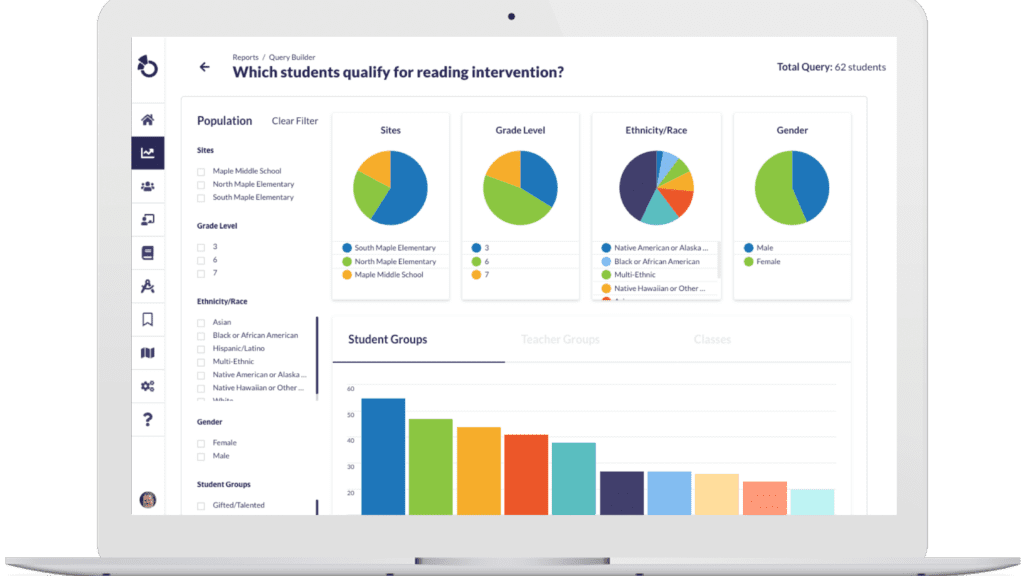Reflections on Evidence-Based Grading Practices: What We Learned for Next Year
By: David Specht
As schools work toward more accurate and meaningful grading, what lessons have emerged from implementing evidence-based approaches?
In this roundtable discussion, K-12 school leaders share their experiences with standards-based grading (SBG), competency-based grading, mastery learning, and other research-backed models.

Watch the webinar recording to learn:
- Key lessons from schools implementing evidence-based grading practices.
- How schools are overcoming common challenges, including building teacher and community buy-in.
- Practical steps to refine how you assess student progress toward learning standards.
Whether your district is refining an existing grading system or exploring a shift, this conversation will provide valuable insights to guide your next steps.
Watch the full recording:
Three big lessons from our grading discussion
1. Ditch the “does it count?” mentality by redefining assessment purpose
For too long, students have focused on whether an assignment impacts their final grade rather than on the learning itself. Shifting the language around assessments can profoundly change student engagement and effort. By framing practice and preparation separately from high-stakes evaluation, schools can encourage a genuine pursuit of mastery where every step of learning is valued, not just a final score. This reframe helps students understand that each activity contributes to their overall understanding and growth.
“One of the lessons we learned when we were using the terms ‘formative’ and ‘summative’ assessments is that students would try to game the system. The first thing students would ask once we said, ‘Here's your assignment,’ is, ‘Is that formative or summative?’ because our formative assessments were 20% of their grade, and our summative assessments were 80%. And what we found was that their effort on an assessment was in correlation to whether or not it was formative or summative."
Brian Bruggeman
Band Director and WEB Co-coordinator
,
Monroe Middle School (WI)
2. Empower students by cultivating ownership over their learning journey
When students understand the ‘why’ behind their learning activities and assessments, they become more engaged and responsible for their own progress. Providing clarity on expectations and offering numerous opportunities for practice and revision empowers them to take charge. This approach shifts the teacher’s role from simply delivering content to guiding students to become self-directed learners who recognize their own growth. By doing this, teachers can foster a mindset where continuous improvement is the norm, not just a reaction to grades.
"So it really has been an opportunity to get to formulate my classes in a distinct way—to get to the point where they really don't need me. They know exactly what's going to be expected of them and can follow through and really be in charge of their own learning, which is really powerful."
Danielle Pernot
Instructor & FFA Advisory
,
Monroe Middle School (WI)
3. Foster trust and transparency through clear communication with your community
Implementing new grading practices, especially standards-based grading, requires proactive and consistent communication with families and the broader school community. It’s important to explain the benefits, such as how it pinpoints specific areas for growth and reduces grade inflation. By inviting families to learn alongside the school and offering resources, you can build a strong partnership that ensures everyone understands and supports the shift toward a more meaningful picture of student learning.
"It's really important that we are communicating clearly with our community members, our parents. They often ask, ’ Why can't I just look at a report card or a progress report and see an A, B, C, or D and see how my kid's doing?’ It's settling them on the idea that when we look at this, we can identify exactly where your kid needs to grow as well as the growth that they've already shown across the standards."
Grant Warren
Principal
,
Lewisburg School (KY)
Related Resources
Request a demo!
See exactly how Otus can help your school accelerate student growth and improve student outcomes – all while saving educators time.




